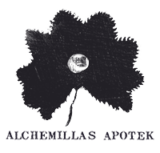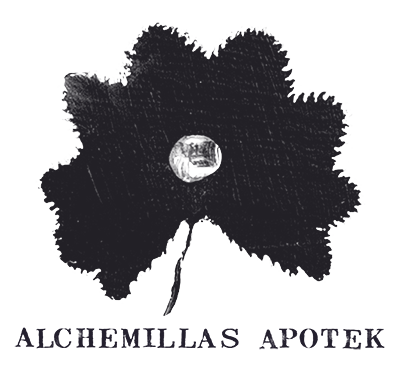Description
Spagyrisk tinktur av Salvia Officinalis.
Används ej under graviditet eller av epileptiker.
Ta 5-7 droppar direkt på tungan med pipetten eller i lite rumstempererat vatten eller te vid behov.
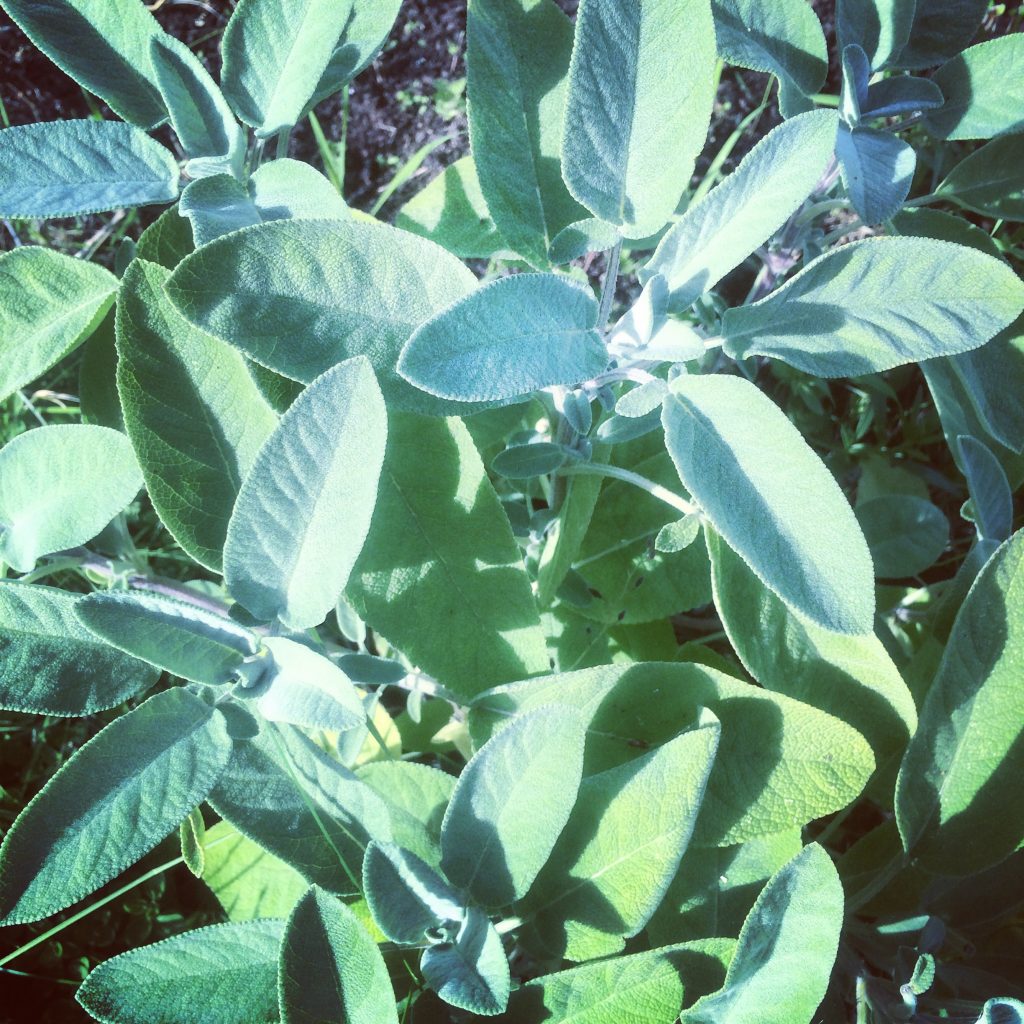
150 kr
Salvia är för den praktiserande mystikern – I walk my talk
![]()
Salvia används vid inflammation och irritation i halsen och luftvägarna. Salvia verkar på levern, gallan och matsmältningen genom att hjälpa levern att bryta ner fett. Salvia hjälper till att reglera svettning.
![]()
Salvia främjar klarhet i kommunikationen. Den stödjer oss att leverera vårat budskap. Salvia hjälper oss att knyta an med vårt sanna jag och att upptäcka visdomen som finns i allt runt om kring oss och uppenbarar att alla reflektioner av livet är reflektioner av oss själva, ty vårat väsen innehåller hela universum.
![]()
Salvia stödjer oss att integrera den andliga och den fysiska verkligheten så den blir till en värld. Den upplöser gränsen mellan det vardagliga och det heliga och stödjer oss att förankra kunskapen i hjärtat där den kan transformeras till visdom. Salvia kan bli en inre lärare.
Används ej under graviditet eller av epileptiker.
Ta 5-7 droppar direkt på tungan med pipetten eller i lite rumstempererat vatten eller te vid behov.

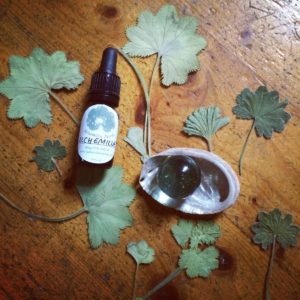
[:en]The Alchemist distills the Gold of a Thousand Mornings.
![]()
Lady´s Mantle has a time honored traditional use as a woman's healing herb. Lady´s Mantle has astringent and styptic properties, on account of the tannins it contains. It is a very healing herb for the womb and can be helpful for painful menstruations. It is a fertility herb, also good to use during and after pregnancy.
As a heart-tonic Alchemilla can be combined with prescribed medications. Strengthens the arteries. Good for swollen feet and legs.
![]()
The botanical name, Alchemilla, or “little alchemist” speaks of the uses of Lady’s Mantle which have the ability to transform. Matthew Woods writes an account of this in The Book of Herbal Wisdom.
The alchemists found interest in the fact that the morning dew gathers like a translucent pearl in the center of the fan-like leaves, well into almost mid-day, when other plants are all dried off.
“Something within it is distilling the essence and simultaneously helping to preserve it. In a material sense Alchemila must correspond to processes which encourage cohesion on the surface of the droplet and prevent vaporization, while at the same time (and plants seem to work in two opposite directions) it must possess the ability to refine and distill fluids into their most subtle expression or essence.”
![]()
In the same way in which the subtle, invisible membrane preserving the cohesion and integrity if the droplet is maintained, we can imagine Alchemilla making a subtle, invisible membrane around a person. It is encouraging integrity and cohesion. It works uplifting and empowering. It is about a kind of inner circulation and distillation.
It is healing to the emotional waters of the body and supports healing from sexual trauma.
[:sv]Alkemisten destillerar tusen morgnars guld.
![]()
Daggkåpa är en kvinnoört med sammandragande egenskaper. Den är läkande för livmodern och bra att ta till vid smärtsam menstruation. Den har använts traditionellt som en fertilitetsört och är stärkande under och efter en graviditet. Den stärker även hjärtat och artärer och går att kombinera med receptbelagda mediciner. Daggkåpa är bra vid svullna fötter och ben.
![]()
Etymologiskt avslöjar Alchemilla “den lilla alkemisten” att hon har transformativa förmågor. Matthew Wood skriver i sin bok “The Book of Herbal Wisdom” att alkemisterna fascinerades av att daggdroppar samlas i mitten av de solfjäderlika bladen och bevaras där långt efter att daggen torkat på andra växter på eftermiddagen. Någonting hos daggkåpan både destillerar och bevarar daggens essens. Alchemilla uppmuntrar en kohesion, en sammanbindning mellan molekyler och atomer i ett material, i detta fall daggen, och fördröjer evaporeringen, samtidigt som hon verkar ha förmågan att förfina och destillera vätskor till sitt mest subtila uttryck och essens. Växter arbetar ofta på detta sätt – i två polariteter av ett spektrum.
![]()
På samma vis som det subtila osynliga membranet bevarar kohesionen och integriteten av daggdroppen, kan man se Alchemilla skapa en subtil, osynlig bubbla runt en person på ett energiplan. Integriteten stärks och man känner sig sammanhållen. Daggkåpan verkar upplyftande och skänker inre styrka. Det handlar om en slags inre destillering och cirkulation. Den helar vårt inre vatten och de känslor som strömmar inom oss. Daggkåpa kan vara bra att ta till om man har råkat ut för emotionella eller sexuella övergrepp.[:]
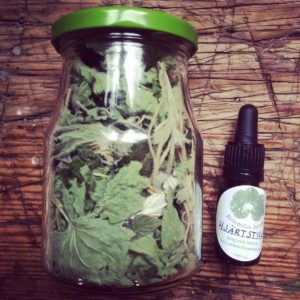
[:en]
“It takes courage to grow up and become who you really are.” – E.E. Cummings
![]()
Motherwort supports the physical and emotional heart, the nervous system and the female urogenital tract. Motherwort brings on delayed menstruation and eases menstrual cramping and pain, PMS and eases childbirth.
![]()
Motherwort is indicated in cases of anxiety that is felt like a tension of the heart or palpitations of the heart.
![]()
Motherwort is a representative of the sacred feminine, the Great Mother. She wants to connect all of us (men, too) to the divine feminine energies. To be brave, to open the heart, to give and receive love.
Motherwort has a lot to do with being courageous and what the essence of motherhood actually is.[:sv]
“Det kräver mod att växa upp att bli den du verkligen är.” – E.E. Cummings
![]()
Hjärtstilla stödjer det fysiska och det emotionella hjärtat, det centrala nervsystemet samt livmodern och de kvinnliga reproduktionsorganen. Hjärtstilla kan få försenad mens att komma igång och lindrar menssmärta, kramp, PMS och förlossningssmärtor.
![]()
Hjärtstilla lindrar ångest som känns i hjärtat och yttrar sig i kramp eller hjärtklappning.
![]()
Hjärtstilla representerar det heligt feminina, Den Stora Modern. Hon vill skapa ett förbund mellan oss alla (även männen) med det heligt femininas energi. Att visa mod, att ha ett öppet hjärta, att kunna ge och ta emot kärlek. Hjärtstilla har mycket med mod att göra och vad moderskapets essens faktiskt handlar om.[:]
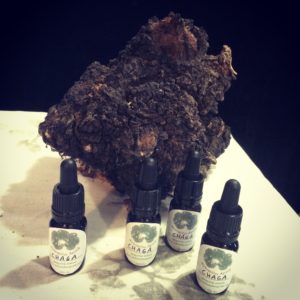
[:en]CHAGA – king of medicinal mushrooms
![]()
Chaga grows on birchtrees in the northern hemisphere. It goes under the name of “The King of Medicinal Mushrooms”. It is filled with antioxiadants. It strengthens the immunesystem.
It is also a powerful adaptogene, which means that it helps the body to handle stress and improve physical and mental work capacity.
![]()
Stress and disease are closely connected. Chaga helps us to meet the challenges of a stressful world with couarage and dedication.
![]()
Chaga helps us in gather our strength to meet the unknown and to transform all that seems challenging into valuble lessons and opportunities for growth.[:sv]CHAGA – king of medicinal mushrooms
![]()
Chaga växer på björkar på norra halvklotet. Den kallas även sprängticka då den är en parasit som liksom sprängs ut ur björken. Björken skadas ej när man skördar chaga.
Späckad med antioxidanter stärker den immunförsvaret. Den är också en adaptogen, vilket ger oss stöd i att hantera stress och förbättra fysisk och mental arbetskapacitet.
![]()
Det finns en koppling mellan stress och sjukdom. Chaga ger oss energi att hantera livets motgångar och stöd i att transformera dem till värdefulla insikter.
![]()
Chaga stödjer oss i att möta det okända och att växa genom det vi får möta genom livet.[:]
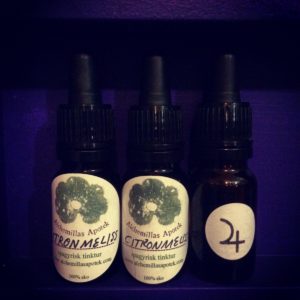
[:en]
“See the world as if for the first time; see it through the eyes of a child, and you will suddenly find that you are free” – Deepak Chopra
![]()
Calming for the physical as well as the emotional heart. Good for indigestion, gas and bloating.
![]()
Lemon balm is a plant with both mood and cognitive-enhancement properties. It is calming, soothing anxiety and is spiritually uplifting. It brings joy and wonder to the user.
![]()
Lemon balm was the favorite herb of Paracelsus, the father of spagyria, who believed it would 'revivify a man' and called it “the elixir of life”. 12th century herbalist Saint Hildegarde von Bingen said “Lemon balm contains within it the virtues of a dozen other plants.”
Lemon balm is ruled by jupiter, the largest planet of our solar system, mainly composed of gas. Jupiter is called Guru in India, and the archetype of jupiter has to do with expansion, joy and the inner teacher.
Lemon balm instills a childlike wonder. It is possible and necessary to reinstall this quality if it is lost. This is the teaching of Lemon balm.
[:sv]
“Se världen som om du såg den för första gången, se den genom barnets ögon och du kommer att upptäcka att du är fri.” – Deepak Chopra
![]()
Citronmeliss är lugnande för kropp så väl som själ, särskillt för det emotionella hjärtat.
Bra vid matsmältningsbesvär, gaser och svullen mage.
![]()
Citronmeliss höjer humöret och de kognitiva förmågorna. Den verkar lugnande, lindrar ångest och verkar upplyftande.
Den bringar glädje och förundran.
![]()
Citronmeliss var den spagyriska konstens fader, Paracelsus, favoritört. Han skrev att den återupplivar människan och kallade den för “Livselixiret”.
Hildegard av Bingen skrev att citronmeliss innehåller lika mycket läkekraft som åtminstonde ett dussin örter tillsammans.
Citronmeliss står under jupiters beskydd, den största planeten i vårt solsystem, som till största del besår av gas. Jupiter kallas Guru i Indien och det har verkligen att göra med planetens arketyp. Jupiter har med expansion, glädje och den inre läraren att göra. Citronmeliss har med barnets förundran att göra. Det är möjligt och nödvändigt att återinstallera denna kvalité om den har gått förlorad. Det är citronmelissens innersta visdom.
[:]
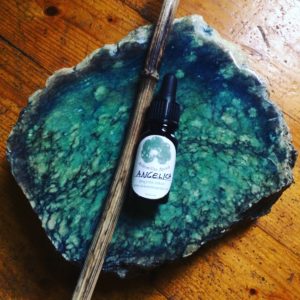
[:en]As above – So below
![]()
Angelica is bitter, warming and aromatic.
It can be useful in treatment of swellings, inflammations and glandular indurations, particularly of the head and neck region. Good for circulation, for cold hands and feet. Used for fever.
It is good for anguish, spasms, nervous excitation and fatigue; calms excess in both the sympathetic and parasympathetic branches of the autonomic nervous system. It is good for PMS and excessive bleeding while menstruating.
Can be used for for arthritis and gout. Good for the liver, increases digestion and metabolism of oil and production of bile, hence increases digestion and nutrition. It relaxes the throat and makes it easier to take long deep breaths. It simultaneously opens the imagination and the mind when prana (life force through breath) can flow.
![]()
Angelica is an important Shamanic plant among the Saami people of the North.
In Native American herbalism it is referred to as a “Bear Medicine”. Just as the bear goes into hibernation through the winter, bear medicine usually relax the mind, open the imagination and bring people into dreamtime. Angelica certainly has this capacity.
Bears eats these roots upon awakening in spring to wake up, clear their throat and start rebuilding their mass.
![]()
I see Angelica as an embodiment of the Alchemical device “As above so below”.
The deep aromatic root and the umbrella-like flower full of starlike seeds are connected through a hollow stem, a channel connecting the heaven and the earth. This is one of the effects the Spagyric Tincture may have upon you – making you feel like this channel.
Angelica connects you with your guardian angel, or if you prefer to call it your higher self.[:sv]Så som ovan – så och nedan
![]()
Kvanne är bitter, värmande och aromatisk.
Kan användas vid svullnader, inflammationer, särskilt i nack- och huvudregionen samt svullnade lymfkörtlar. Bra för cirkulationen, kalla händer och fötter.
Kan användas vid feber, ångesttillstånd, när man är nervöst uppjagad eller vid utmattning. Kvanne lugnar både det sympatiska och parasympatiska nervsystemet. Bra vid PMS och vid kraftig menstruationsblödning.
Kan användas vid artros och gikt. Bra för levern, matsmältningen och gallproduktionen.
Avslappnande för halsen och underlättar djupandning. När prana kan flöda (livskraft via andetaget) främjas fantasin och sinnet öppnas.
![]()
Kvanne är en viktig helande ört för shamanerna i norr, bla samerna. Hos de nordamerikanska indianerna hör kvanne till Björn-medicinerna.
På samma vis som björnen går i ide , har björn-medicinen en avslappnande verkan på sinnet, fantasin väcks och kontakten med drömtiden stärks.
Björnar äter kvannerötter när de vaknar på våren för att ta djupa andetag och för att stärka sig.
![]()
Jag upplever Kvanne som förkroppsligandet av den alkemiska devisen: Så som ovan- så och nedan. Den armotaiska roten och den paraply-formade
blomman full av stjärnlika frön förbinds av en ihålig stjälk, en kanal mellan himmel och jord. Angelica stärker förbindelsen med vår skyddsängel, eller
högre jag.[:]
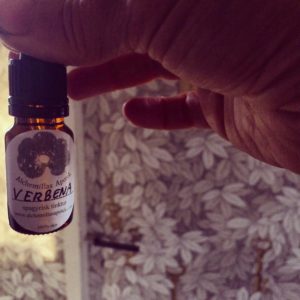
[:en]Sacred herb of the druids.
![]()
Bitter tonic – good for digestion, moving stuck liver energy, nervine – good for burnt-out nervous system, relaxant – especially for tension in the neck, shoulder, head region, very good for painful menses and PMS, also for hot flashes.
![]()
Vervain helps the entrepreneur to unwind and stop working at home. It is indicated for list makers, for people with mental excess as it moves the energy downwards and works as a remedy of embodiment. Vervain people tend to neglect themselves, they forget to eat, drink water, clean the house, exercise etc.
Instead they tunnel vision on their goal and loose sight of other important facets of their life which can fall wayside.
![]()
Indicated for driven visionaries that can burn out from over exhaustion yet be constantly striving. Vervain helps the soul to center and ground its tremendous enthusiasm. The body becomes a natural regulator and harmoniser for the abundant spiritual forces that pour out of such a person, a soul that is able to inspire, lead and heal others.
[:sv]Druidernas heliga ört.
![]()
Järnört är bittert och är bra för matsmältningen, levern, avslappnande för nerverna – särskilt vid utbrändhet, avslappnande för spänningar- särskilt i nacke, skuldror och huvud samt mycket bra vid smärtsam menstruation, PMS och värmevallningar.
![]()
Järnörten hjälper entreprenören att varva ner och sluta arbeta hemma efter arbetsdagen. Den är speciellt bra för folk som skriver listor och för de som har för mycket mental energi då det för energin neråt och gör att man är mer närvarande i sin kropp i stället för bara uppe i huvudet. Järnörts-personer har tendensen att negligera sig själva, glömmer att äta och dricka tillräckligt med vatten, städa sitt hem, träna etcetera. I stället drabbas de av tunnelseende med ett enda mål i sikte medan andra viktiga delar av livet faller i glömska.
![]()
Järnört är bra för drivna visionärer som kan bränna ut sig själva och utmattas av sin konstanta strävan. Järnört centrerar själen och jordar dessa människors enorma entusiasm. Kroppen börjar att balansera sig naturligt och det överflöd av energi som en sådan inspiratör sprider kan kanaliseras och användas för att leda och hela andra.[:]
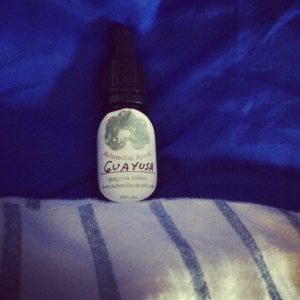
[:en]Amazonian dream teacher.
![]()
Guayusa is a cousin plant to Yerba Mate, and elicits similar benefits including natural caffeine that energizes without the resultant jitters or crash associated with other caffeinated drinks like coffee. Guayusa is full of antioxidants, more so than in green tea. Guayusa aids in digestion and boosts metabolism.
![]()
Guayusa, or “Wayusa,” is known within the Kichwa community to awaken the spirit, bring peace to the body, and stimulate the mind. It will also induce vivid and lucid dreaming if you drink it at night. Legend has it, that the Kichwa tribe prayed for a plant that could help them connect to the dream world. When they awoke in the morning, there was a guayusa plant in front of them.
![]()
The Spirit of Guayusa is an amazing teacher! I decided to turn these magical leaves into a spagyric tincture, extracting in a strong decoction from snow and maceration in 40% alcohol and it turned out very well! I transformed the snow when the new moon was in pisces into a strong Guayusa tea to help us integrate the teachings of our dreams.
[:sv]Drömfångaren och vägvisaren
![]()
Guayusa är en kusin till Yerba Mate, och ger liknande effekt, inklusive naturligt koffein som ger energi utan att man blir skakis eller att magen krashar vilket andra koffeindrycker kan resultera i. Guayusa är proppfull med antioxidanter, betydligt mer än grönt te, till exempel.
Guayusa är bra för matsmältningen och ökar förbränningen.
![]()
Guayusa eller “Wayusa” som det uttalas används av Kichawafolket för att väcka anden, ge frid till kroppen och stimulera sinnet. Guayusa ger också livliga drömmar eller lucida tillstånd om man tar elixiret på kvällen innan man lägger sig. Legenden berättar att Kichawafolket bad om att träffa en växt som kunde hjälpa dem att stärka kontakten med drömvärlden. Nästa morgon fann de Guayusaträdet framför dem.
![]()
Guayusas ande är en otrolig lärare! Jag bestämde mig för att transformera dessa blad till en spagyrisk tinktur och valde att göra en dekokt av fullmånebelyst snö när månen befann sig i fiskarnas tecken. Jag gjorde parallellt en tinktur och sedan fullföljde jag den spagyriska processen och kombinerade dessa extrakt. Fiskarnas arketyp stödjer oss i att integrera drömmarnas lärdomar.[:]
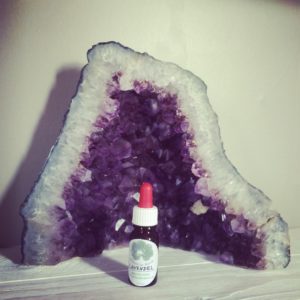
[:en]Balsam for the soul
![]() Cooling, stimulating, relaxing. Good for cramps and tension both mentally and physically, muscle aches, migraines. Lavender has the action of concentrating the blood and blood sugar for the liver to nourish and strengthen it. Good for motion sickness, dizziness, fainting. Good for people who are so tired that they can not keep their head up. Migraine after a long week or a long day and for working with details.
Cooling, stimulating, relaxing. Good for cramps and tension both mentally and physically, muscle aches, migraines. Lavender has the action of concentrating the blood and blood sugar for the liver to nourish and strengthen it. Good for motion sickness, dizziness, fainting. Good for people who are so tired that they can not keep their head up. Migraine after a long week or a long day and for working with details.
![]() It is good to take in the evening to wind down when the mind is overly active. The prabhava (special potency) of lavender is that it works just as well the other way, it wakes up the sleepy minds.
It is good to take in the evening to wind down when the mind is overly active. The prabhava (special potency) of lavender is that it works just as well the other way, it wakes up the sleepy minds.
Lavender is good for the people who have high demands on themselves and others. This type is often very driven, overworked and tense, resulting in fatigue, aches and tension in the neck, shoulders and headaches. (use together with vervain)
Good for people who get stuck in the details, finicky.
Good for the type of depression and anxiety that often combines with Irritable bowel syndrome.
![]() Rudolf Steiner writes that Lavender is indicated for spiritual states where the astral body is holding on to the physical body and keeps it in a too tight grip which results in cramping and straining on the nerves. Another explanation is that the autonomic nervous system takes over when the unconscious is not able to handle or process experiences. In any case, lavender works as a balm for the soul. It opens the mind so that some of it can take off and fly out. If the mind is holding on to an excessive content, to vast to understand, this creates tension. It is good in OCD, obsessive thoughts and behaviors. (Even better in combination with passion flower)[:sv]Balsam för själen
Rudolf Steiner writes that Lavender is indicated for spiritual states where the astral body is holding on to the physical body and keeps it in a too tight grip which results in cramping and straining on the nerves. Another explanation is that the autonomic nervous system takes over when the unconscious is not able to handle or process experiences. In any case, lavender works as a balm for the soul. It opens the mind so that some of it can take off and fly out. If the mind is holding on to an excessive content, to vast to understand, this creates tension. It is good in OCD, obsessive thoughts and behaviors. (Even better in combination with passion flower)[:sv]Balsam för själen
![]() Kylande, stimulerande och avslappnande. Bra vid kramp och spänningar både mentalt och fysiskt, muskelvärk och migrän. Lavendel är bra vid åksjuka, yrsel och svimning. Det är bra för personer som är så trötta att de har svårt att hålla uppe huvudet eller för de som får migrän efter att ha arbetat med detaljer.
Kylande, stimulerande och avslappnande. Bra vid kramp och spänningar både mentalt och fysiskt, muskelvärk och migrän. Lavendel är bra vid åksjuka, yrsel och svimning. Det är bra för personer som är så trötta att de har svårt att hålla uppe huvudet eller för de som får migrän efter att ha arbetat med detaljer.
![]() Lavendel är bra att ta på kvällen för att varva ner när sinnet är överaktivt. Dess prabhava (dess speciella egenskap och förmåga) är att den fungerar på båda ändarna av spektrat: den väcker upp sömniga sinnen likaså.
Lavendel är bra att ta på kvällen för att varva ner när sinnet är överaktivt. Dess prabhava (dess speciella egenskap och förmåga) är att den fungerar på båda ändarna av spektrat: den väcker upp sömniga sinnen likaså.
Lavendel är bra för människor som har höga krav på sig själva och sin omgivning. Denna typ är ofta en driven arbetsnarkoman som drabbas av trötthet, värk och spänningar i nacke och skuldror samt huvudvärk. (Lavendel kan då kombineras med järnört).
Lavendel är bra för petiga personer som kan förlora sig i detaljerna. Lavendel är också bra vid den typ av melankoli och ångest som yttrar sig i magbesvär.
![]() Rudolf Steiner skriver att lavendel passar för andliga tillstånd där astralkroppen griper tag i den fysiska kroppen och håller den i ett för krampaktigt grepp vilket resulterar i kramp och slitage på nerverna. Det kan också vara så att det autonoma nervsystemet tar över när det omedvetna inte längre orkar att hantera och bearbeta upplevelser. Oavsett verkar lavendel som ett balsam för själen. Det öppnar sinnet så att en del av det kan flyga fritt. Om sinnet krampaktigt håller fast vid för stora innehåll, som är för stora att förstå, skapas spänningar. Man kan prova lavendel vid tvångstankar (kombinera gärna då med passionsblomma).[:]
Rudolf Steiner skriver att lavendel passar för andliga tillstånd där astralkroppen griper tag i den fysiska kroppen och håller den i ett för krampaktigt grepp vilket resulterar i kramp och slitage på nerverna. Det kan också vara så att det autonoma nervsystemet tar över när det omedvetna inte längre orkar att hantera och bearbeta upplevelser. Oavsett verkar lavendel som ett balsam för själen. Det öppnar sinnet så att en del av det kan flyga fritt. Om sinnet krampaktigt håller fast vid för stora innehåll, som är för stora att förstå, skapas spänningar. Man kan prova lavendel vid tvångstankar (kombinera gärna då med passionsblomma).[:]
